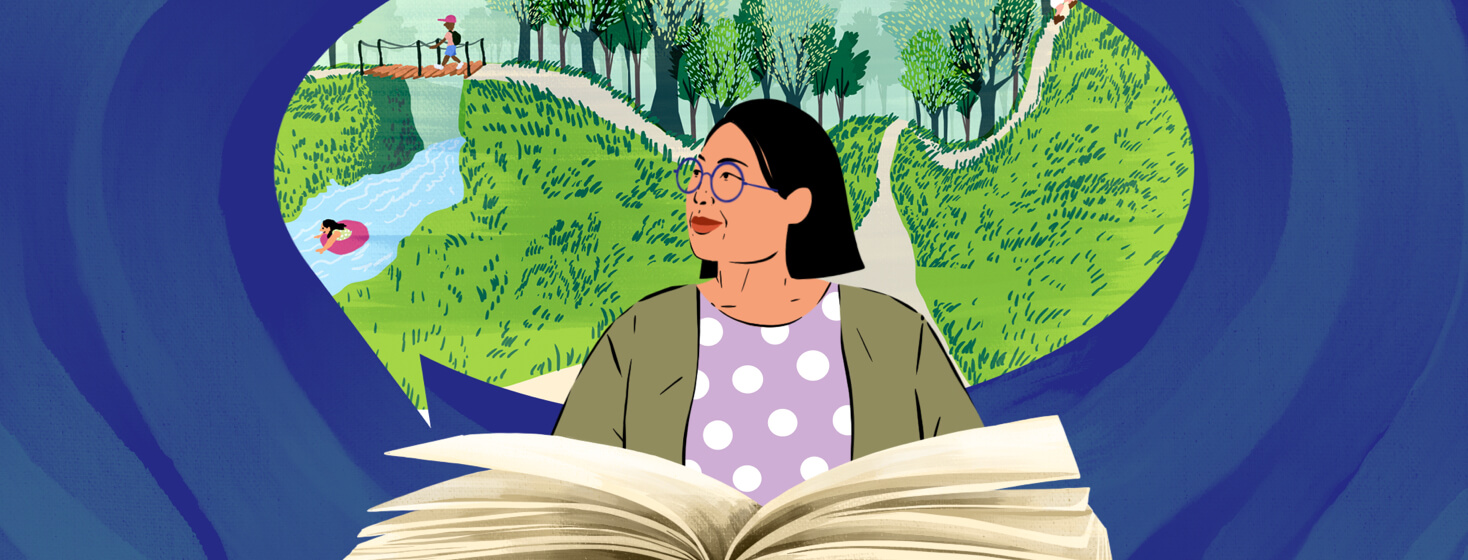Yes, You Need a Break. Here's Why.
Given the state of the world, we do not need a Gallup poll to tell us that 100% of the population believes they need an escape. I am going to go out on a limb and guess that 94% would favor an all-expenses-paid trip to a tropical island. (The remaining 6% are “not sure” - isn’t that the case in any survey?)
For MS patients and their caregivers, the poll was probably accurate long before the pandemic. Even with helpful disease-modifying drugs, MS is a daily stressor for patients and their caregivers. The toll is mental as well as physical.
But this post is not about commiseration. It is about escapism. A refuge from reality means different things to different people, but escapism is a place, a technique, an art that all of us need to master.
The benefits of taking a break with MS
Escapism is where we permit our concerns and frustrations to flow away. It does not repress our worries, but it frees our minds and puts them in a restful state. When our minds enjoy a respite from daily stress, it helps us put our thoughts and our emotions back in balance. It helps us cope better with the anxieties, large and small, of everyday living.
Diverting from real worries makes us better patients, better caregivers, and better people. We escape for little chunks of time every day, without even thinking about it. We escape when we daydream. When we fantasize. When we watch a movie. But are these the most effective ways to escape?
Escapes you might not have thought were escapes
Some popular escapes are meditation, yoga, and running. All good, but psychologists have suggested that some additional activities may be just as effective in relaxing our minds and transporting us to another place without the need for a passport.
Reading
Reading is not just nourishment for the mind, it is a natural relaxant. A 2009 U.K. study found that reading fiction for only a few minutes can reduce stress levels by up to 68%. Reading can lower one’s heart rate and ease muscle tension.1
Alone time
Spending time alone has proven difficult during the pandemic, but it is a worthwhile escape. The tranquility that solitude provides is restful and it enables us to recharge, reflect, and regroup.
A walk in the woods
Forest bathing (or forest therapy) is one of my favorites. It is much more than just getting in some steps in the woods. When we immerse ourselves in the atmosphere of a forest, it can help us relax and refuel.
“The sights, sounds and smells of the forest take us right into that (present) moment,” said Scott Bea, PsyD, of the Cleveland Clinic. “Mindfulness is the practice of being in the present moment with intention, without judging...forest therapy involves noticing and sensing things rather than judging or evaluating.”2 Studies have shown that forest bathing reduces cortisol, a stress hormone, and regulates blood pressure and blood sugar levels.
Find a break spot anywhere you can
Would any of these escapes be richer if you experienced them on a warm, sandy beach? Of course! But literally getting far away from it all is not always possible. So, we need to remind ourselves that, no matter where we live, a wooded walk or a body of water or a quiet bench for reading is relatively close.
Making time for one of these activities is not merely a good idea, it may very well be a necessity.

Join the conversation